Sommaire
Pagination de l'dition papier
Guide
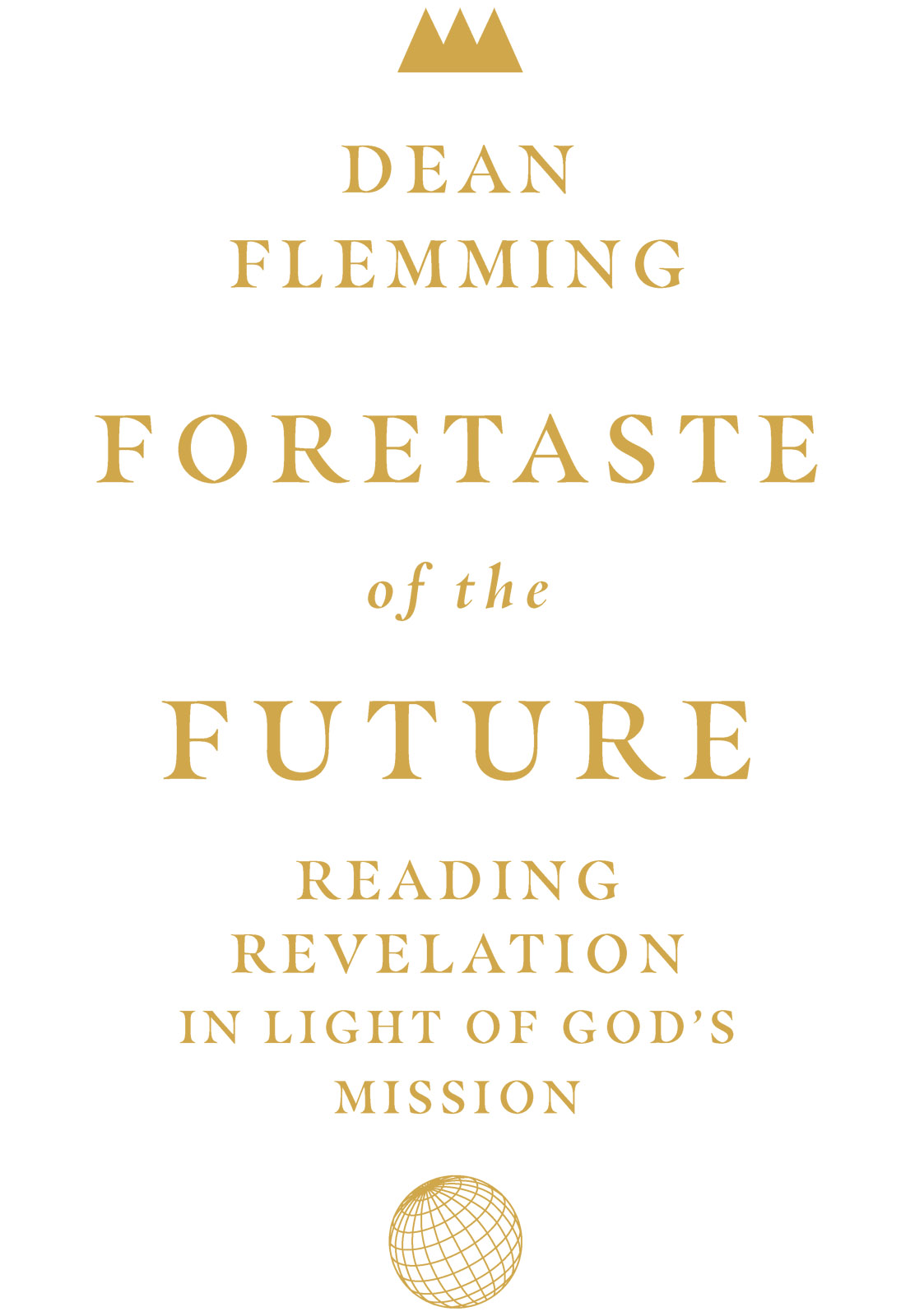
 InterVarsity Press
InterVarsity Press
P.O. Box 1400 | Downers Grove, IL 60515-1426
2022 by Dean E. Flemming
All rights reserved. No part of this book may be reproduced in any form without written permission from InterVarsity Press.
InterVarsity Press is the publishing division of InterVarsity Christian Fellowship/USA.
For more information, visit intervarsity.org.
Scripture quotations, unless otherwise noted, are from the New Revised Standard Version Bible, copyright 1989 National Council of the Churches of Christ in the United States of America. Used by permission.
All rights reserved worldwide.
The publisher cannot verify the accuracy or functionality of website URLs used in this book beyond the date of publication.
Cover design and image composite: David Fassett
ISBN 978-1-5140-0157-8 (digital)
ISBN 978-1-5140-0156-1 (print)
This digital document has been produced by Nord Compo.
To my students at Asia-Pacific Nazarene Theological Seminary,
European Nazarene College, and MidAmerica Nazarene University,
who, over the years, have inspired me to read
and teach Scripture more faithfully.
Acknowledgments
WRITING THIS BOOK has turned out to be a joyful journey. In part, that has to do with the subject, the mind-blowing book of Revelation. But it also stems from the rich input of conversation partners along the way. Above all, I want to thank three dear friends, Andy Johnson, Darrell Ranum, and Chris Lindenmeyer, for carefully reading the full manuscript. Each has offered astute suggestions and welcome encouragement from their distinctive perspectives. Others have read and commented on significant parts of the book, including Corlis McGee, Tim Isbell, and Robert Menzies, and I am grateful.
My deep thanks also goes to Anna Gissing, my editor at IVP Academic, for her guidance and encouragement throughout the life of the project, as well as to Rebecca Carhart and others at InterVarsity Press who have helped shepherd the book into publication. In addition, I want to express appreciation to the following publications and editors: Missiology and its editor Richard Starcher, along with Sage Publications, for permission to use revised material from an article that appeared in the April 2020 edition of the journal and Claremont Press, and Thomas E. Phillips for permission to adapt material from the essay Divine Judgment and the Missio Dei in the Book of Revelation, which appears in the 2020 volume Listening Again to the Text: New Testament Studies in Honor of George Lyons, edited by Richard P. Thompson.
Finally, I give glory to God for the Spirits strength, insight, and motivation, without which this book would not be possible. Praise and glory and wisdom and thanks and honor and power and strength be to our God for ever and ever (Rev 7:12 NIV).
Introduction
Reimagining Revelation
He who was seated on the throne said, I am making everything new!
REVELATION 21:5 (NIV)
LIKE MANY OF YOU, Ive had a love/hate relationship with the book of Revelation. Frankly, Revelation and I got off to a rocky start! I grew up in an American evangelical church culture that read the visions in Revelation as a kind of screenplay for the end times. Prophecy experts came to my church and with the aid of their impressive charts explained step by step how the future would play out. My youth group watched a movie that vividly portrayed the horror of what it would be like to be left behind on earth during the Great Tribulation, after true believers had been raptured to heaven. It really scared me! As a college student I read Hal Lindseys The Late Great Planet Earth, which tried to cross-reference the images in Revelation with then-current events, especially in the Middle East, speculating that the events leading up to the end of the world might occur during the 1980s. Its worth noting that some interpreters of Revelation still follow this method of deciphering Revelations message. As I write these words, well-meaning Christian bloggers speculate on whether the coronavirus pandemic unlocks the meaning of Revelations symbol of a pale horseman unleashing lethal pestilence on the earth (Rev 6:8). Although I largely bought into this script-of-the-end-times approach to interpreting Revelation (it was the only one I knew), I struggled to fathom how the prophecy experts could be so certain that this means this.
All of this left me with two fundamental responses to Revelation: confusion and fear. Not surprisingly, I see the same reactions to the Apocalypse in my students today. Some of them have come under the influence of the wildly popular Left Behind series of Christian fiction books and the four action movies that they spawned. Others know little about Revelation, except that is it supposed to predict the future. One student pictured Revelation as the elephant in the room in his Christian life. Like the proverbial elephant, its there. Its uncomfortable. But we ignore it. Even as a pastor and later a teacher of the Bible, I largely avoided the book of Revelation. It was too violent, too depressing, too hard to understand. Instead, I left it mainly to the experts to try to figure out the meaning of this baffling book. In effect, I did what many Christians do when confronted with the complexities of the Apocalypse. Revelation became the ugly stepsister in my personal canon of Scripture, strangely disconnected from the Jesus of the Gospels and the practical theology of the New Testament Letters.
I wasnt alone. For centuries Christians have wrestled with what to do with this mysterious book of visions. The reformer Martin Luther struggled with whether it should be included in the New Testament canon. For John Calvin, it was virtually the only New Testament book on which he did not write a commentary. Methodist founder John Wesley, after utterly despairing of understanding much of Revelation, subcontracted his explanatory notes on it, relying mainly on the comments of the earlier scholar Bengel. At least I was in good company.
But then my relationship with Revelation changeddramatically. It happened quite unintentionally. While teaching New Testament in Germany, I was asked to write an essay on Revelation for a book honoring one of my former professors. The reason the editors of the volume enlisted me for this assignment had absolutely nothing to do with my brilliance as a Revelation scholar. They simply couldnt find anyone else willing to do it! I reluctantlyand perhaps foolishlyagreed to write the essay, not because I felt in the least qualified but out of respect for my former teacher. You might say that I backed into the study of Revelation. In the early stages of my research, however, I came across Richard Bauckhams The Theology of the Book of Revelation

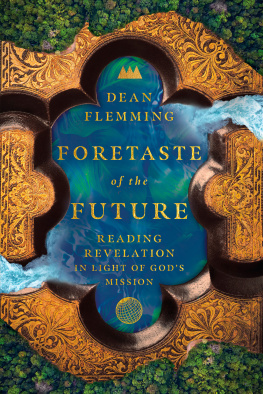

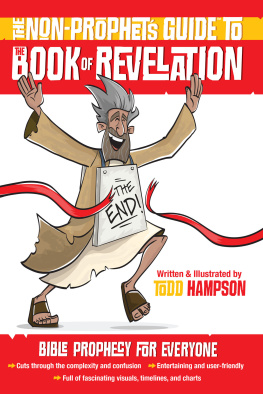
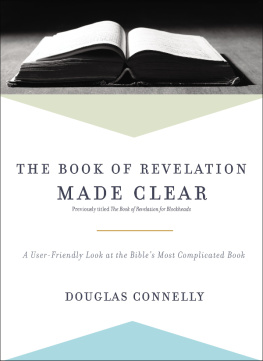
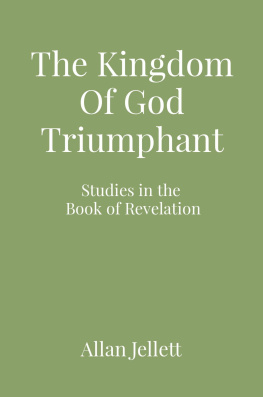
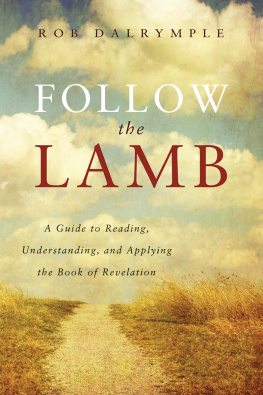
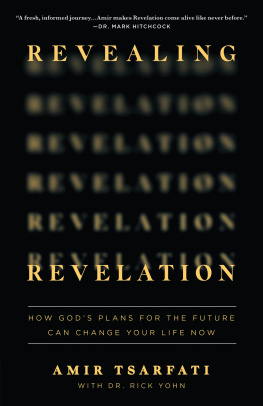
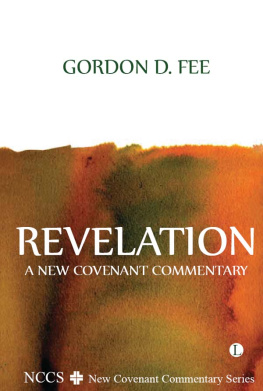
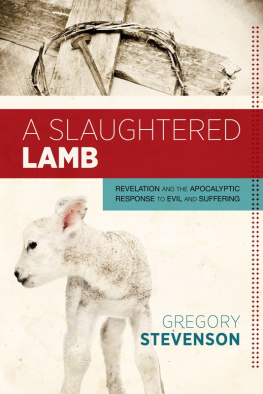

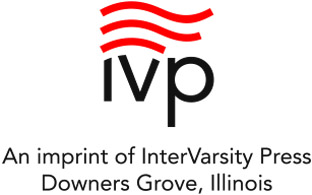
 InterVarsity Press
InterVarsity Press